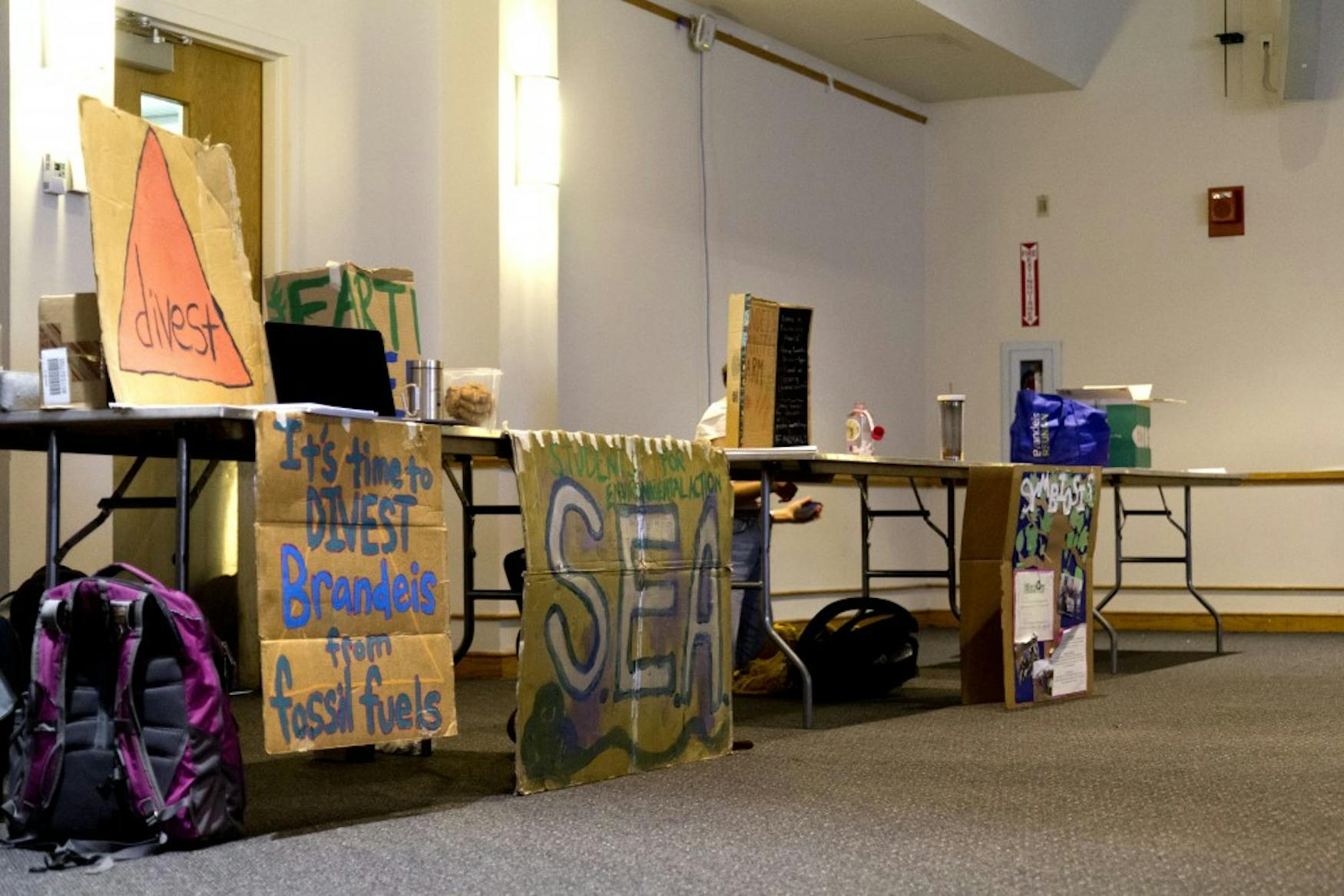University examines the State of Sustainability on campus
Campus clubs, staff members and members of the Brandeis community gathered to learn about the state of sustainability on Thursday night. Mary Fischer, the University’s sustainability programs manager, spoke about recent sustainability initiatives and what the campus has achieved in recent years.
The University reached its goal to cut carbon emissions by 10 percent from fiscal year 2015 to fiscal year 2018, according to Fischer. She said that the University actually cut emissions by 12.6 percent using a variety of strategies, including implementing campus-wide energy policies, building upgrades and cutting unnecessary energy use. Biofuel options were explored, but she explained that this initiative has been halted because of pricing concerns.
Fischer highlighted the recent replacement of all incandescent light bulbs in the Shapiro Campus Center with new LED bulbs. This initiative cuts overall carbon emissions by three percent, which, according to Fischer, is a significant improvement for one building. The LED lighting produces more light and less heat, thus increasing efficiency and brightness at the same time. Fischer announced that lighting upgrades similar to those in the SCC will be implemented in other buildings to further reduce carbon emissions.
Looking forward, Fischer said the goal is to reduce the University’s carbon emissions by 15 percent by fiscal year 2020, although it is unclear what the base year for this goal is..
Fischer also announced a new program that will target unnecessary heating and air conditioning in unoccupied residence hall rooms and residence halls when students are away. She explained that this initiative would use intelligent infrared sensors to predict when the occupants will return and only heat or cool the room when the occupants actually return.
After examining campus-wide initiatives, Fischer discussed ways individual students can promote sustainability on campus. She encouraged students to install the UCapture extension on their web browsers, which plants trees every time a user shops at partnering websites. As of Sept. 29, Ucapture’s website reports that it has 53 members at Brandeis who have helped remove 2,496 pounds of carbon from the atmosphere.
Fischer also noted that people do not sort their food waste, even when promotion efforts are implemented. This means composting efforts currently do not have much effect on campus. She said that many food items do not belong in compost containers, particularly meat and dairy. However, dining halls do compost their waste, which has increased the percentage of waste that was composted on campus from two percent to nine percent from fiscal year 2015 to 2017.
Keeping food waste and leftovers in mind, Fischer highlighted the fact that many students, especially graduate students, go hungry. Thus, in an effort to reduce both hunger and food waste, the Graduate Student Association’s main conference room is serving as a food pantry where anyone at Brandeis can pick up food that they need or drop off leftovers. Another way to provide leftover food to hungry students, especially food left over from events, is to use the Brandeis Free Food Facebook page, she said.
Finally, Fischer highlighted the Brandeis Sustainability Fund, a source of funding for those who want to propose a project or activity that would help Brandeis become even more sustainable in the long term.



Please note All comments are eligible for publication in The Justice.